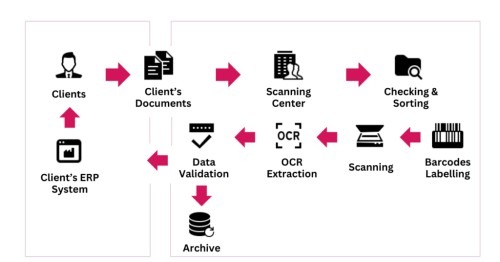In today’s digital world, when technology reigns supreme, incorporating machine learning into Real Estate CRM Software transforms how professionals work in the sector.
AI analytics are integrated into real estate customer relationship management (CRM) software. AI analytics are improving the efficiency and effectiveness of CRM systems for real estate professionals.
This blog discusses the significance and applications of machine learning in real estate CRM software.
What is machine learning?
Machine learning is a subset of AI. It allows computers to learn and improve through experience without being explicitly programmed. It allows systems to evaluate data, detect patterns, and make judgments with little human intervention.
What is Real Estate CRM software?
Real estate CRM software facilitates communication between real estate agents and their clients. It centralizes client data, automates tasks, and improves communication. It ultimately boosts efficiency and production.
Importance of ML in Real Estate CRM Software
ML enhances real estate CRM software by enabling predictive analytics, customization, and automation. Machine learning algorithms predict market patterns by examining large amounts of data. It finds potential leads and optimizes marketing campaigns. It allows agents to make informed judgments.
Curabitur varius eros et lacus rutrum consequat. Mauris sollicitudin enim condimentum, luctus enim justo non, molestie nisl.
Automating real estate tasks
Data entry, lead scoring, and email responses are examples of repetitive operations. These can be automated using machine learning algorithms. This frees up agents’ time so they may focus on high-value operations.
Many repetitive administrative procedures in real estate can be automated using machine learning. Documents such as leases and deeds can be processed to automatically populate fields. Calendars sync to automatically recommend the best times to meet based on roles, priorities, locations, and traffic predictions.
AI analyzes messages to identify those that require an instant response. They summarize important details and suggest relevant follow-ups based on past interactions.
Enhanced Decision-Making
Machine learning algorithms can provide significant information to real estate experts. These insights enable agents and brokers to make informed pricing decisions.
ML improves human judgment in crucial real estate decisions. Algorithms quickly assess prospects across dimensions to identify the most promising ones.
Personalized communication with prospects
CRM software uses machine learning to personalize interactions. This personalized strategy strengthens relationships and enhances the possibility of conversions.
Efficient Sales Management
Machine learning algorithms can improve sales operations. This simplifies sales management and increases productivity throughout the organization.
Predictive analytics
ML algorithms use past data to estimate property values, rental returns, and market demand. It enables agents to predict market movements and make informed investment decisions.
Machine learning detects and prioritizes possible leads based on their chance of conversion. It helps agents concentrate their attention on high-value opportunities.
Machine learning algorithms assess customer interests and behaviors to provide tailored property recommendations. It improves client happiness and raises the chances of a successful transaction.
Summary
Machine learning is revolutionizing the real estate sector by expanding CRM software. Its predictive analytics capabilities help agents optimize operations. They improve client connections and succeed in an increasingly competitive industry. Embracing machine learning in Real estate CRM software is more than simply a technology improvement. It is a strategic need to be competitive in the ever-changing real estate industry. Contact us today!



